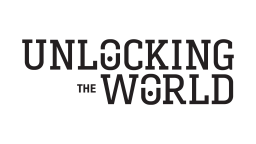Editor’s Note: Coronavirus cases are in flux across the globe. Health officials caution that staying home is the best way to stem transmission until you’re fully vaccinated. Below is information on what to know if you still plan to travel, last updated on August 1.
If you’re planning to travel to Ghana, here’s what you’ll need to know and expect if you want to visit during the global coronavirus pandemic.

The basics
Ghana has been open to international flights for some time, but on March 28 it finally reopened its land and sea borders. All non-resident adults who are not Ghanaian citizens must be fully vaccinated in order to enter the country.
What’s on offer
Ghana may be blessed with some of West Africa’s finest beaches, but it’s so much more than a place to sunbathe. Its coastal forts offer an unflinching insight into the slave trade which was run by the British from these shores. The rambling Kejetia Market, in Kumasi, in the southwest of the country, is said to be the largest in this part of the continent, selling everything from jewelry to footwear. In the north, Mole National Park is the ideal place to see some of Africa’s most famous animals, including elephants, hippos and warthogs.
Who can go
Travelers aged 18 years and over who are not Ghanaian citizens or resident foreigners must be fully vaccinated in order to enter.
Ghanaians and resident foreigners who are not fully vaccinated are allowed entry but restrictions apply (see below).
Entry requirements
Non-resident travelers aged 18 years and over must be fully vaccinated in order to enter. They no longer need to undergo any Covid-19 testing.
Ghanaians and resident foreigners who are not fully vaccinated will be offered vaccination on arrival. Alternatively, they can undergo mandatory quarantine at a government-assigned facility for seven days at their own expense.
They must also have proof of a negative PCR test taken within 48 hours of departure and also undertake an additional antigen test on arrival.
This costs $50 per passenger for Ghanaians and citizens of the Economic Community of West African States (ECOWAS) and $150 for everyone else, with results available within 30 minutes. Payment must be made online prior to boarding the flight to Ghana.
Anyone testing positive on arrival will be assessed by the Port Health Unit for quarantine either in a government health facility or isolation center. The cost of the mandatory seven-day stay must be covered by passengers at their own expense.
All passengers must complete an online health declaration form and may be asked to do so again on board before landing.
US CDC Travel Advisory:
Level: Unknown. Make sure you are fully vaccinated before traveling.
Useful links
Ministry of Health health declaration form
Our latest coverage
Artist Serge Attukwei Clottey is building a real-life yellow brick road in Accra. Here’s how he’s doing it.
Last year, US music legend Stevie Wonder announced to Oprah Winfrey that he plans to move to Ghana. If you’re thinking of following in Wonder’s footsteps, here’s our list of the best things to see and do in the country.
Joe Minihane, Julia Buckley and Maureen O’Hare contributed to this report
